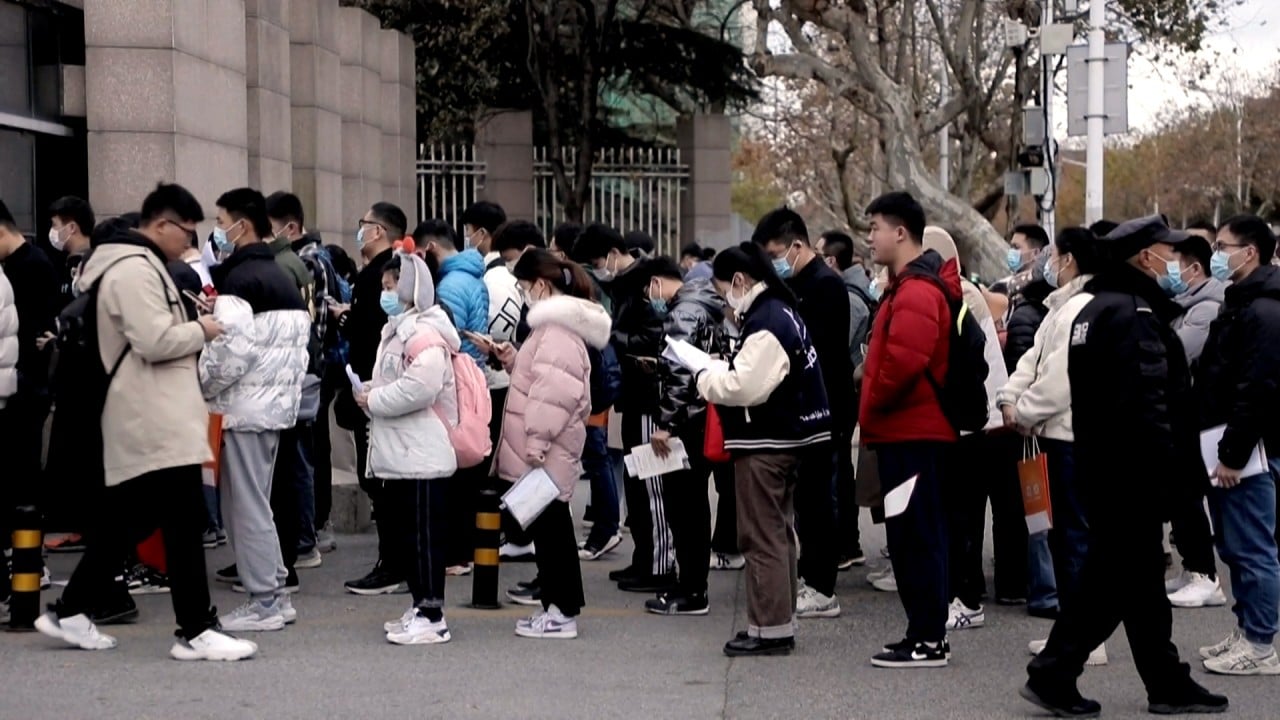
China jobs: Beijing offers support as record 10.76 million graduates ramps up employment pressure
- The government will offer special help to young entrepreneurs and a range of incentives for small companies to employ fresh graduates
- Youth unemployment is already high in China and competition for jobs has been intensified by lay-offs caused by regulatory clampdowns
The government will offer special help to young entrepreneurs as “starting a new business has a multiplier effect in driving up employment”, the National Development and Reform Commission (NDRC), China’s top economic planning agency, said on Friday.
“In recent years, more college graduates have taken part in entrepreneurship, but they also face difficulties in financing, lack of experiences and services among other [issues],” the NDRC said in a statement. “The exemplary activities this year will revolve around the promotion of college graduates’ entrepreneurial practices and employment opportunities.”
The list of preferential policies include free, government-funded start-up incubators, special loans with reduced interest rates, fee and tax cuts, as well as the possibility for college students to retain school credits while taking years off to start a business.
Chinese graduates return to find Western degrees no longer an ‘advantage’
The 10.76 million students set to enter the job market in 2022 does not include those who graduated from overseas universities and are returning home.
At the end of 2019, SMEs accounted for about 80 per cent of the nation’s non-government employment.
The government announced a range of incentives for companies to employ fresh graduates last week.
Why are China’s small firms the backbone of the economy?
Small businesses that employ a certain proportion of new graduates, as well as young people who graduated within two years but have been jobless, will be eligible for benefits and loans with reduced interest.
Local governments have also been implementing policies to stablize employment for graduates.
For instance, authorities in Guangdong, the most economically developed Chinese province with gross domestic product bigger than that of Italy, have encouraged SMEs to take in more college graduates by offering subsidies.
Graduates who become teachers in rural areas can get a refund for their college tuition, while benefits are available for young people who take up work in agriculture, medicine and poverty alleviation in the countryside.
The NDRC said employment opportunities will be created for female graduates, families where no member is employed and households receiving the minimum level of social security benefits.


